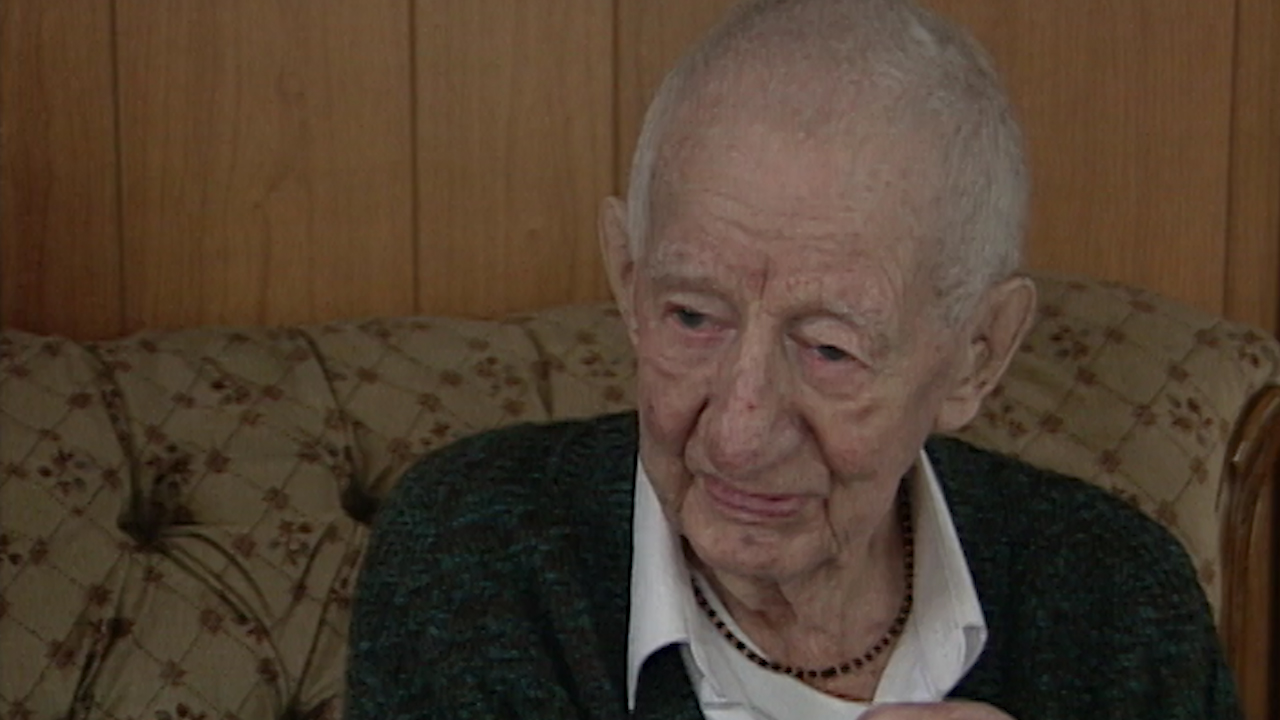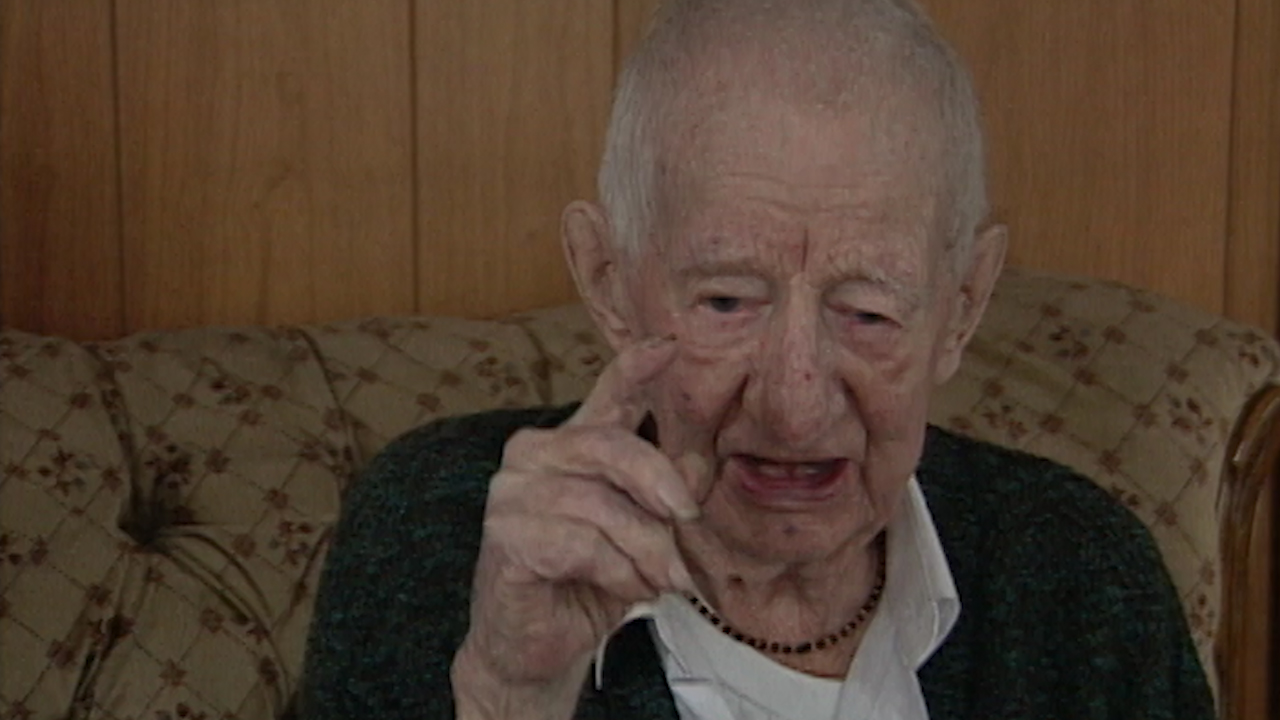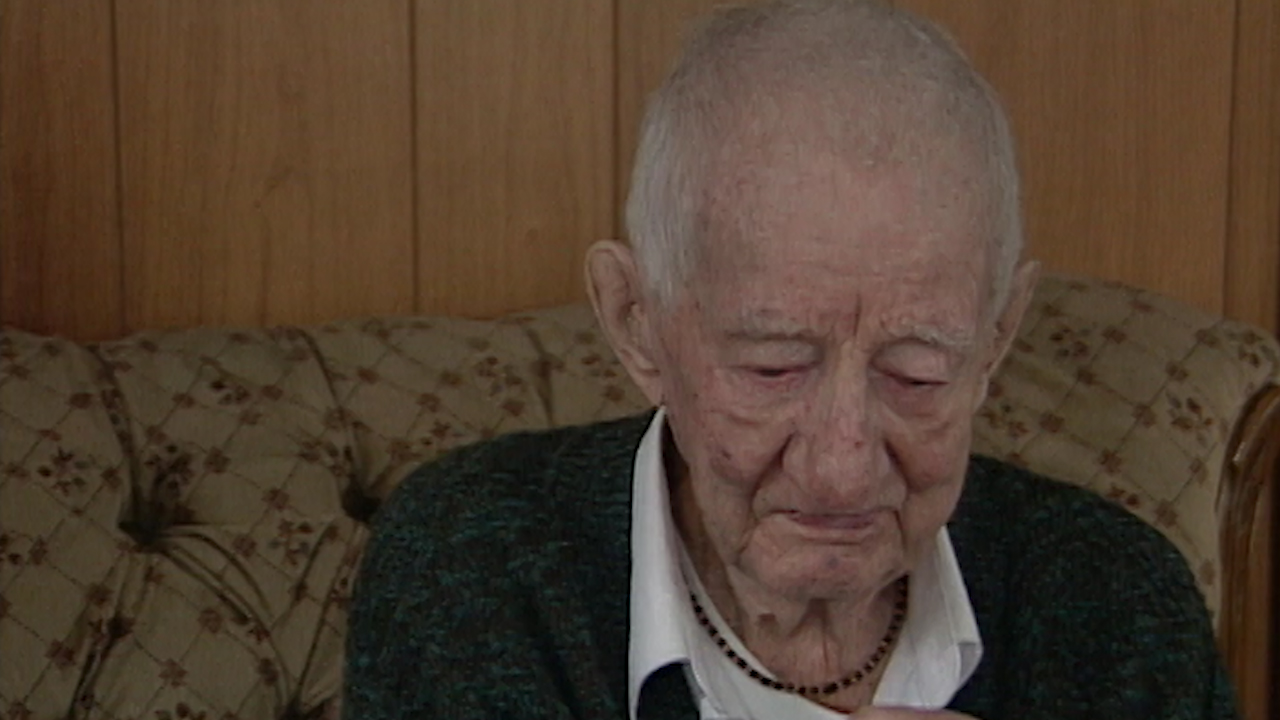A Signaller
Heroes Remember
A Signaller
Transcript
You had to train on all the weapons, you know.
Even though you were only going
to be a signaller. You had to train to use any
weapon they might have on hand if you were
called on to do it you know.
There was many casualties in transit they
had to keep drawing from us, we never got
to France as a unit, as a brigade, you know.
They took so many recruits from our ranks
that we had to break up and they finally
broke us up and I went to France
with the heavy machine guns,
the Machine Gun Battalion,
and it was the heavy Vickers guns, you know.
Course I was a Signaler wherever I went and
that's the communications man you know.
Oh, mostly telephone, telephone.
We learned on these telephone signaling
and the other Morse code signaling with the
flags which they never use that in the war.
They couldn't stand up and start waving
flags around or you'd get a bullet
in the head or something.
Description
Mr. MacDougall describes how his brigade was broken up to provide reinforcements to the four brigades already in France, and his role as a signaller in a machine gun battalion.
Alec MacDougall
Alec MacDougall was born on September 20, 1896 in Glace Bay, Nova Scotia. His father was a miner and also owned a farm. Mr. MacDougall finished grade 10, then worked at the local foundry until enlisting in the Army in 1916. His Battalion, the 185th Cape Breton Highlanders trained at Camp Aldershot, Nova Scotia before sailing to England aboard the SS Olympia. He deployed to France as a signaler with the 4th Division, and saw action most notably at Arras and Amiens.
Meta Data
- Medium:
- Video
- Owner:
- Veterans Affairs Canada
- Duration:
- 1:33
- Person Interviewed:
- Alec MacDougall
- War, Conflict or Mission:
- First World War
- Branch:
- Army
- Units/Ship:
- 185th Cape Breton Highlanders
- Occupation:
- Signaller
Related Videos
- Date modified:





